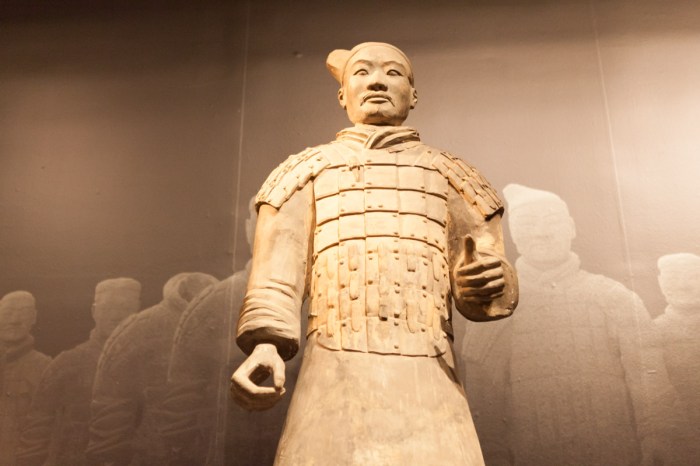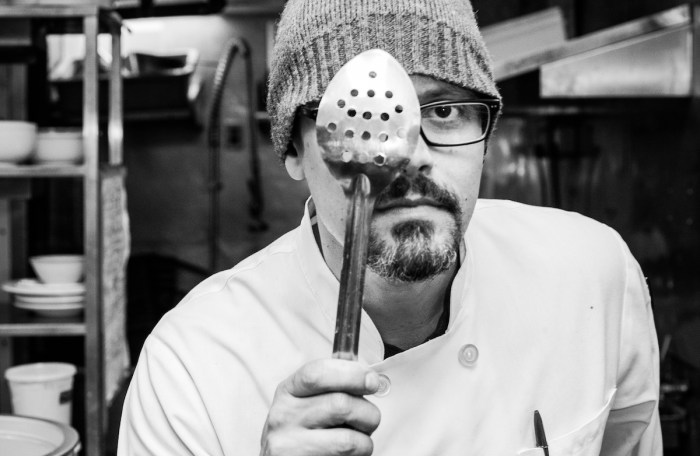Time is not on Steven Moffat’s side.
When we caught up with the “Doctor Who” (and “Sherlock”) showrunner last month to talk about the sci-fi series’ ninth season, he was still writing it. “Whenever I go on holiday, wherever I am, sitting in an airport or car service, [writing] has been my fate,” he says. As for his more time-adept lead character, the Doctor (Peter Capaldi) has plenty of his own troubles. He rejoined with his companion Clara (Jenna Coleman), but lost his homeworld of Gallifrey (again), so finding that will be a on the agenda — when he gets to it between adventures. And then there’s the matter of his long-lost rival The Master returning… as a woman. Will finding Gallifrey be the priority in Season 9?
It’s out there, and it’s the back of the Doctor’s mind. I’m bloody curious about the Doctor’s nostalgia for Gallifrey, because we all know he ran away from it ’cause he found it so boring. So what happens if he finds it? He takes one look out the TARDIS door and says, ‘Nah,’ and takes off again.But we always miss home when we can’t get to it, I guess that’s the thing. He’s never going to have a single quest, the Doctor — he wants to have lunch with as many famous people as he can and go to the fairgrounds and have a nice ride in a train — that’s what the Doctor’s like, he’s got attention deficit disorder, racing around trying to entertain himself and have fun with Clara. That’s what he wants, that’s his mission. Any significance to the gender-swap of his rival, the Master, to Missy?
It’s the same character; there’s just been a radical change. I don’t thinkTime Lords really mind about that sort of thing, and the Doctor doesn’t react at all when the Master reveals herself, he never even queries it. He knows perfectly well that it can happen in a regeneration. Maybe it doesn’t happen very often — [laughs] here’s me talking about the science of regeneration — a given Time Lord is mostly male and occasionally becomes female, or is mostly female and occasionally becomes male. Dreams and feelings were big themes last season. Is this Doctor less afraid to be introspective?
I think the Doctor is always worried about that. One of the things I find interesting about him is what he’s really like compared to what everybody thinks he is. He has this great aspiration to be this man known as the Doctor who does the right thing and is never cruel and never cowardly — but we watch the show.We know that he’s frail, and he can be vain, and he can be a bit up himself; he’s so born to the aristocracy he never stops being imperious even if he pretends he’s a man of the people. It’s all the frailties that make him interesting. People view him either as a great hero or a great avenger or a mighty warrior, and we know he isn’t. He’s a man who’s got a time machine, and he wants to go everywhere and see everything; he just wants to have fun. He’s just racketing around the universe, he’s not tracking down villains and demolishing them. He’s just somebody whose compassion is so boundless that when he encounters cruelty or tyranny, he can’t help but fight it. But he’s always a passer-by, and he always becomes the last man standing. But that’s not his agenda, he’s not in his head a hero. Does that tie into why he hated Clara’s boyfriend, Danny Pink, who was a soldier?
All loathing is self-loathing; that’s a truth about everybody. He’s so horrified that he’s actually got to be a hugely effective soldier that he derides somebody for being sort of like him. He’s always saying, “I’ll never carry a gun.” So what, you blow up planets! Where do you draw the line, what shape is that line you’re drawing? It’s moral nonsense. There’s also the thing, and you can see it in “Doctor Who” from the very first with William Hartnell and Christopher Eccleston, that he’s got a very blokeish, a very manly sort of resentment of any other man hanging around the girl he happens to be adventuring with. He doesn’t like it, even though he’s not doing that at all, he just finds it very annoying. He’s much nicer to Barbara [than Ian]; he’s horrible to Mickey.He would be horrified to know this about himself, but he’s an alpha male sometimes: I will show off to all the girls and deride all the men. Does the Doctor allow himself to feel regret, or does he make peace with his decisions as soon as they’re made?
He keeps on the move for that reason. He’s not a big fan of sticking around for the consequences, is he? He’ll depose the government; he won’t set up a new one. I think he runs, not an untypical reaction — just keep moving, don’t think about it. In his case, the past is so long, if he sat there and thought of it — all the people he’s lost and all the things he’s done — he’d have time for nothing else. I always find it very hard when you’ve got a scene where he has to talk to one of his old companions, ‘cause I sort of think he can’t — it’d be too destructive for him, too awful to start talking about that. It would all just come out. So he sort of doesn’t talk much in the past tense; this is a man after all who’s been reticent on the subject of his name, we can’t expect him to overshare, can we? Let’s settle the “Sherlock” crossover question.
The problem with crossing over “Doctor Who” is the impact you have on the other show. If you actually did the Doctor meets Sherlock Holmes — which will not happen — then where’s Sherlock at the end of that? He’s just learned there is intelligent life in the universe, and time travel is possible — he must now factor this into any deduction he makes in the future. Did Sherlock live through those Dalek invasions? Why doesn’t he consider the possibility that the murderer might have had a TARDIS? It would have a huge influence on Sherlock, that’s what Sue [Vertue, “Sherlock” producer] always says: Sherlock cannot be taking place in the same universe as “Doctor Who,” it literally can’t, because we know the Doctor is perfectly aware of the Victorian Sherlock Holmes as a fictional character.


















